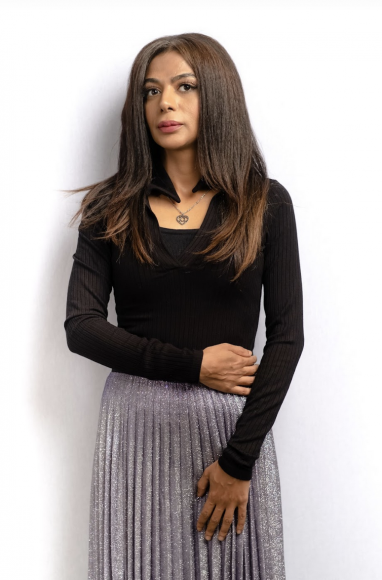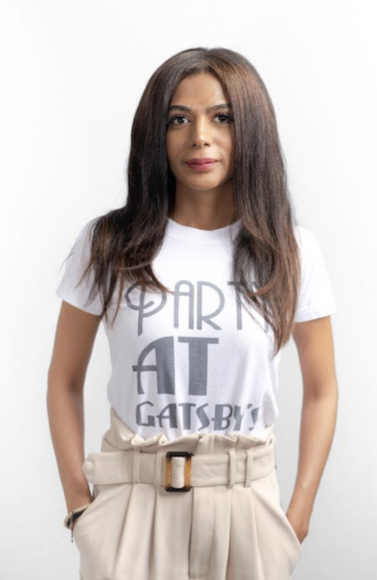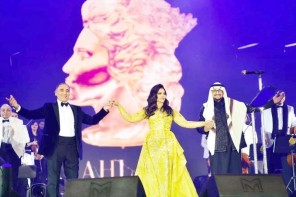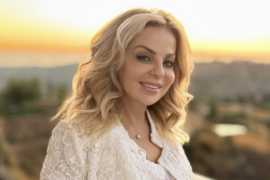A woman of many hats, Ghada Aboud is keen on breaking the stereotypes surrounding Arab women. She juggles several careers, all with a joint mission of being a voice for the voiceless and representing talent rather than gender.
As a journalist, author and actress, what is your favorite title out of all and why?
There is one common thing between the three jobs, which is storytelling; I hold a B.A. in Broadcast Journalism and Philosophy from the American University in Cairo. Larry King inspired me because he made us meet successful and influential figures on a human level and connect with them. The same thing with writing, I write to introduce marginalized figures and give them a voice, through telling stories. Then acting to connect with people who are different from me and help tell their stories and expand my writing vision. So I believe the three professions stem from the same source, which is telling stories and giving a voice to different people.
How do you think your journalism degree served your other professions?
I majored in journalism because of my passion for it. I was very persistent to study journalism. I then discovered through my work that journalism is a craft that you master as you progress in your career. I am grateful that I studied philosophy as it has helped to see things from a different point of view. Both have helped me as an author and an actress to do “my homework”. I used my journalism skills in research to build my characters whether as a novel author, scriptwriter, or as an actress. Hence, I narrate reality. However, I would like to tell all those who are reluctant about their majors at university to study something that they love and that adds to them as humans. They can then work in any profession they like.
You seem to switch back and forth between different professions, how do you manage to multitask? Do you plan on focusing on one career this year?
I don’t, and I refuse to portray a perfect image that I have it all figured out. The truth is that nobody has it figured out, but we do our best. And I am trying to do my best to be able to tell the stories that I believe need to be told. I juggle sometimes between the urge to finish a novel, work on a script, and auditioning for acting roles. The only thing I have managed is to keep faith in believing in my stories, and being honest in voicing those who don’t have one.
Last year I spent it all focusing on my second novel. I am thankful that I was able to finish it after four years of writing.
What would you say is your proudest project and achievement so far?
I tend not to lean on being achievement oriented or a fixated person, though the pressure on our modern days puts huge focus on achievement, I am grateful I published a novel. Finished my second one, written and acted in a mini play.
Many Saudi female authors have had best selling books around the region, in your opinion, what makes Saudi novels and literature works so different?
The regional and international community has a hungry curiosity towards Saudi narrative. For many years they were, and still are, eager to know how we are different from them. Only for them to discover through our stories that we are not different, we share the same passions, the same dreams. Now that Saudi Arabia has taken enlightening steps towards Vision 2030, we are opening up to the world and our similarities with the international community will be shared on an even wider spectrum.
Another reason is that Saudis, due to our history with poems and art, are talented, and we have inherited treasures of art and creativity, and now we have a chance to express that.
As an actress what roles do you like playing the most?
I like to play roles that represent the marginalized voices and make them attractive and appealing to empower them. I would love to play romantic roles to prove to audiences that you can find love at the age of 34. A project I am fond of is the film Inwards in which I played the leading role of Dr. Dina, directed by Lana Gomosany and written by Majd Al Dabbagh.
Why do you feel that there seems to be a glass ceiling for Saudi actresses on the Arab and International scene?
They will all tell you and give media statements that it’s due to the scarcity and malfunction of scripts. This is not the truth. The problem lies with the producers and directors. They want to classify scripts with women leading roles as a “women only movie” and that won’t be profitable at box offices. Hence it’s a bad investment. And there isn’t such a thing as women movies or men movies. Cinema was made to cross the barriers of gender and color and all classifications. We are telling stories of humans, and should connect with the film regardless of their gender. I am sure there have been numerous good scripts that couldn’t make it to production because a producer or a director dismissed it. Even with the many promising platforms such as Netflix and Shahid, there is a prerequisite to reach them, which is via the producer and the director.
I would like to take this opportunity to thank producer and writer Mona Khashoggi who believed in my story and invested in it. I am looking forward to bringing my short film to life with artists such as Mona who brought many successful projects to life such as the Umm Kulthum play that was showcased at the London Palladium.
And what are some of your upcoming projects?
I am looking forward to publishing my second novel The Fifth Supper. It is a novel discussing identity crisis and a journey of belonging to a home country after years of alienation. The novel pays tribute to key leading artists in our Saudi culture such as Thuraya Gabil, Tarek abdul Hakim, Ibrahim Khafaji, Talal Maddah and Etab, through following a story of obsession and redemption between Huda and the famous and magnificent writer Ihsan Abdel Quddous. I started hosting a radio show on Saudi Radio, a program that combines art with a human message. I am also waiting for the screening of a documentary film that was based on me as a writer and actress under the title of Ghada. The film is produced and directed by French director Ophelie Sergent.
Finally, I am working on a project with producer Mona Khashoggi. I would like to wait until we are in production to announce it, but I am very happy to work with her.
Text by Victor Gee





